Eugène Green
Nacimiento : 1947-06-28, New York City, New York, USA
Historia
Eugène Green is an American-born, naturalized French filmmaker, and dramatist. He is notable as an educator, training a generation of young actors in the revival of French baroque theatre technique and declamation.

Le vieil homme
Arnaud, a student remaining alone in Paris during the summer, is obsessed with the wall where the names of the Parisian soldiers who died in the 1914 war are engraved. He finds himself confronted by one of these soldiers, who invites him to step out of time and to bring comfort to his loved ones.

Writer
Arnaud, a student remaining alone in Paris during the summer, is obsessed with the wall where the names of the Parisian soldiers who died in the 1914 war are engraved. He finds himself confronted by one of these soldiers, who invites him to step out of time and to bring comfort to his loved ones.

Director
Arnaud, a student remaining alone in Paris during the summer, is obsessed with the wall where the names of the Parisian soldiers who died in the 1914 war are engraved. He finds himself confronted by one of these soldiers, who invites him to step out of time and to bring comfort to his loved ones.
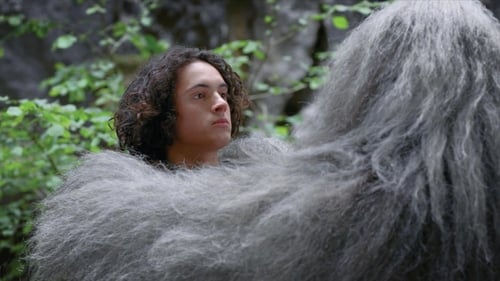
Writer
A fable about the Goddess Mari and her two sons, born of a mortal father, whom she entrusts to the devil for their education. Mikelats decides to stay with his master but Atarrabi flees—but the devil manages to hold onto his shadow.

Director
A fable about the Goddess Mari and her two sons, born of a mortal father, whom she entrusts to the devil for their education. Mikelats decides to stay with his master but Atarrabi flees—but the devil manages to hold onto his shadow.
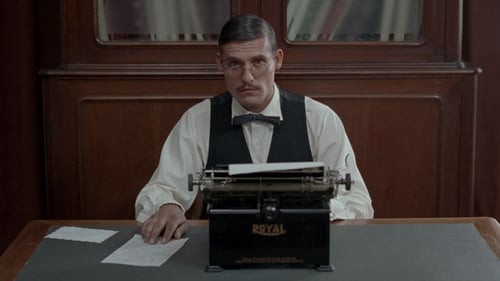
Screenplay
Lisboa, Portugal, 1927. El escritor y periodista Fernando Pessoa acepta de su jefe el encargo de crear un eslogan publicitario para la bebida Coca-Louca; pero las conservadoras autoridades del Gobierno consideran la nueva bebida tan revolucionaria como diabólica.

Painter
Lisboa, Portugal, 1927. El escritor y periodista Fernando Pessoa acepta de su jefe el encargo de crear un eslogan publicitario para la bebida Coca-Louca; pero las conservadoras autoridades del Gobierno consideran la nueva bebida tan revolucionaria como diabólica.

Director
Lisboa, Portugal, 1927. El escritor y periodista Fernando Pessoa acepta de su jefe el encargo de crear un eslogan publicitario para la bebida Coca-Louca; pero las conservadoras autoridades del Gobierno consideran la nueva bebida tan revolucionaria como diabólica.

Director
The countenance of Joseba Sarrionandia is multi-faceted, not only for having dabbled in all literary forms of expression, but for having been capable of creating his own imagery, composed of endless worlds. Thus, several of the elements appearing in the literary world will undoubtedly appear here: the sea, the port, childhood, trains, uprooting, war, destruction, love, drifting, pain, fantasy, mystery, initiation, torture...

Un client de café
Paris, Boris and Alexis are trying to give a meaning to their idleness. In the countryside, Pierre is achieving his opera, which is a new take on the myth of Orpheus, while trying to forget Adelia, who just dumped him.

Opening with the testimony of a politically exiled Basque author reminiscing on a childhood where he was forced to “hide his language as something ugly”, Faire la parole then keeps apace with some young people from the French and Spanish Basque Country: Nora, who saw the newspaper where she worked closed by the Guardia Civil in 2003, then Aitor, Ana and Ortzi. The last three, still teenagers, lend a summery and easy-going tone to the film, which is magnificently framed by Eugène Green’s long-time cameraman, Raphael O’Byrne. The dialogue that settles in between the younger members and those in their thirties has a rare quality, as if the difference of language – which each has had to impose on their family or on their national entourage – had almost tacitly created a secret community. Starting with the political stakes (regional languages versus centralism), the story hikes over the mountains with these new friends brought together by the filmmaker.

Director
Opening with the testimony of a politically exiled Basque author reminiscing on a childhood where he was forced to “hide his language as something ugly”, Faire la parole then keeps apace with some young people from the French and Spanish Basque Country: Nora, who saw the newspaper where she worked closed by the Guardia Civil in 2003, then Aitor, Ana and Ortzi. The last three, still teenagers, lend a summery and easy-going tone to the film, which is magnificently framed by Eugène Green’s long-time cameraman, Raphael O’Byrne. The dialogue that settles in between the younger members and those in their thirties has a rare quality, as if the difference of language – which each has had to impose on their family or on their national entourage – had almost tacitly created a secret community. Starting with the political stakes (regional languages versus centralism), the story hikes over the mountains with these new friends brought together by the filmmaker.
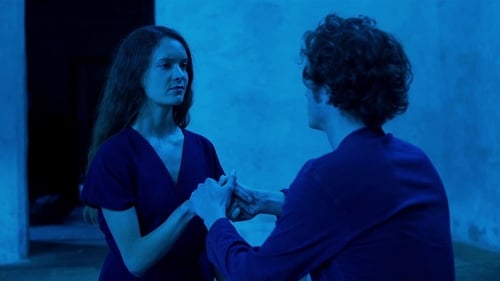
Writer
Una película nacida a raíz de una acción formativa para jóvenes actores celebrada en Toulouse en el mes de mayo, en la que Green vuelve a demostrar su talento para la dirección de intérpretes y su mirada crítica hacia la invasión cultural venida del otro lado del océano.

Director
Una película nacida a raíz de una acción formativa para jóvenes actores celebrada en Toulouse en el mes de mayo, en la que Green vuelve a demostrar su talento para la dirección de intérpretes y su mirada crítica hacia la invasión cultural venida del otro lado del océano.
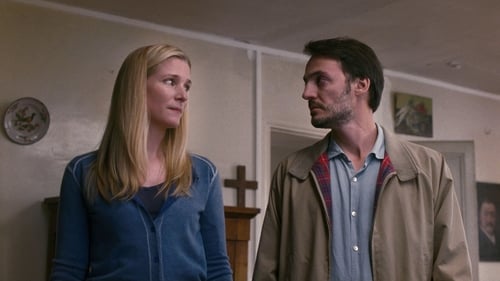
Le concierge de l'hôtel Clovis
Vicente, un adolescente, crece con el amor de su madre, María, pero ella siempre se ha negado a revelar el nombre de su padre. Un día descubre que éste es una editor parisino egoísta y cínico, Oscar Pormenor. El joven tiene un plan de venganza pero su encuentro con Joseph, un hombre algo marginal va a cambiar su vida y la de su madre.

Screenplay
Vicente, un adolescente, crece con el amor de su madre, María, pero ella siempre se ha negado a revelar el nombre de su padre. Un día descubre que éste es una editor parisino egoísta y cínico, Oscar Pormenor. El joven tiene un plan de venganza pero su encuentro con Joseph, un hombre algo marginal va a cambiar su vida y la de su madre.

Director
Vicente, un adolescente, crece con el amor de su madre, María, pero ella siempre se ha negado a revelar el nombre de su padre. Un día descubre que éste es una editor parisino egoísta y cínico, Oscar Pormenor. El joven tiene un plan de venganza pero su encuentro con Joseph, un hombre algo marginal va a cambiar su vida y la de su madre.

Le Chaldéen
Alexandre Schmitdt, arquitecto francés poseedor de una brillante carrera, y su mujer, Aliénor, socióloga especializada en contextos sociales difíciles, es una pareja que comparte una inquietud profunda sobre sus respectivos oficios. Entre ellos se ha creado un silencio que puede acabar comprometiendo de forma irreversible su relación. Consciente de la necesidad de salir de esa situación, Alexandre decide retomar un proyecto importante para él pero abandonado hace ya demasiado tiempo: escribir un texto sobre el arquitecto barroco Francesco Borromini. Necesitada de tomar distancias con su propio trabajo, Aliénor decide acompañarlo, pero en Stresa sus destinos se separan momentáneamente para volver a reunirse, en una especie de renacimiento final absolutamente necesario.

Writer
Alexandre Schmitdt, arquitecto francés poseedor de una brillante carrera, y su mujer, Aliénor, socióloga especializada en contextos sociales difíciles, es una pareja que comparte una inquietud profunda sobre sus respectivos oficios. Entre ellos se ha creado un silencio que puede acabar comprometiendo de forma irreversible su relación. Consciente de la necesidad de salir de esa situación, Alexandre decide retomar un proyecto importante para él pero abandonado hace ya demasiado tiempo: escribir un texto sobre el arquitecto barroco Francesco Borromini. Necesitada de tomar distancias con su propio trabajo, Aliénor decide acompañarlo, pero en Stresa sus destinos se separan momentáneamente para volver a reunirse, en una especie de renacimiento final absolutamente necesario.

Director
Alexandre Schmitdt, arquitecto francés poseedor de una brillante carrera, y su mujer, Aliénor, socióloga especializada en contextos sociales difíciles, es una pareja que comparte una inquietud profunda sobre sus respectivos oficios. Entre ellos se ha creado un silencio que puede acabar comprometiendo de forma irreversible su relación. Consciente de la necesidad de salir de esa situación, Alexandre decide retomar un proyecto importante para él pero abandonado hace ya demasiado tiempo: escribir un texto sobre el arquitecto barroco Francesco Borromini. Necesitada de tomar distancias con su propio trabajo, Aliénor decide acompañarlo, pero en Stresa sus destinos se separan momentáneamente para volver a reunirse, en una especie de renacimiento final absolutamente necesario.
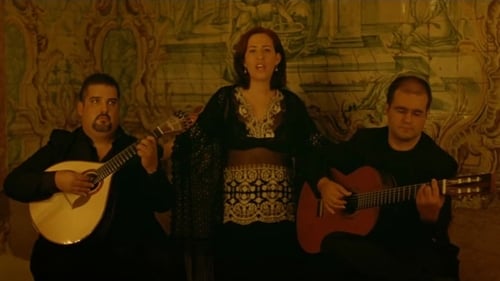
Denis Verde
Una joven actriz portuguesa habla Portugués perfectamente a pesar de nunca haber estado en el país. Llega a Lisboa por primera vez justo antes de que se empezara a filmar una película.

Writer
Una joven actriz portuguesa habla Portugués perfectamente a pesar de nunca haber estado en el país. Llega a Lisboa por primera vez justo antes de que se empezara a filmar una película.

Director
Una joven actriz portuguesa habla Portugués perfectamente a pesar de nunca haber estado en el país. Llega a Lisboa por primera vez justo antes de que se empezara a filmar una película.

Director
Virgile and Blanche, both aged 17, correspond by e-mail. Virgile loves Blanche, but Blanche loves a boy named Eustache. Nobody knows the other's thoughts. Virgile talks about life and death and Blanche listens acceptingly. Eustache enters the room in a blue cap. He sees Virgile first, then Blanche. Then Blanche remembers having danced with Virgile and leves the room to join him.

Story
Previously focused on Asian directors, “Jeonju Digital Project 2007” takes a look at Europe. The Portuguese filmmaker Pedro Costa, the German filmmaker Harun Farocki, and the French filmmaker Eugène Green participated in this project.

Director
Previously focused on Asian directors, “Jeonju Digital Project 2007” takes a look at Europe. The Portuguese filmmaker Pedro Costa, the German filmmaker Harun Farocki, and the French filmmaker Eugène Green participated in this project.

Screenplay
A mother and her two sons have waited for ten years for her husband and their father to return. One day a stranger arrives and approaches them.

Reader in café
A mother and her two sons have waited for ten years for her husband and their father to return. One day a stranger arrives and approaches them.

Director
A mother and her two sons have waited for ten years for her husband and their father to return. One day a stranger arrives and approaches them.

Le serveur du Café Glauque
París, 1979-1980. Pascal retrasa a conciencia el momento de comenzar su tesina de filosofía. Su amiga Christine no comprende su desfachatez. Sarah canta en un grupo barroco y vive de y para su arte. Manuel, su pareja, hace lo posible por apoyarla. En el mundillo del barroco, un trío muy influyente prepara una importante grabación de Monteverdi, bajo la dirección del “Innombrable”, el músico del trío, persona cruel y arrogante. Sarah prepara con ahínco la partitura de canto del “Lamento de la ninfa” El disco sale y obtiene gran éxito. Pascal lo recibe de regalo de Navidad de Christine y queda fascinado por la voz de Sarah. Sarah reanuda sus sesiones musicales con el “Innombrable” pero termina por abandonar al ver que la sigue maltratando y humillando. Pascal se va sumiendo en un estado de melancolía tal que su novia no lo soporta y acaba dejándole.

Writer
París, 1979-1980. Pascal retrasa a conciencia el momento de comenzar su tesina de filosofía. Su amiga Christine no comprende su desfachatez. Sarah canta en un grupo barroco y vive de y para su arte. Manuel, su pareja, hace lo posible por apoyarla. En el mundillo del barroco, un trío muy influyente prepara una importante grabación de Monteverdi, bajo la dirección del “Innombrable”, el músico del trío, persona cruel y arrogante. Sarah prepara con ahínco la partitura de canto del “Lamento de la ninfa” El disco sale y obtiene gran éxito. Pascal lo recibe de regalo de Navidad de Christine y queda fascinado por la voz de Sarah. Sarah reanuda sus sesiones musicales con el “Innombrable” pero termina por abandonar al ver que la sigue maltratando y humillando. Pascal se va sumiendo en un estado de melancolía tal que su novia no lo soporta y acaba dejándole.

Director
París, 1979-1980. Pascal retrasa a conciencia el momento de comenzar su tesina de filosofía. Su amiga Christine no comprende su desfachatez. Sarah canta en un grupo barroco y vive de y para su arte. Manuel, su pareja, hace lo posible por apoyarla. En el mundillo del barroco, un trío muy influyente prepara una importante grabación de Monteverdi, bajo la dirección del “Innombrable”, el músico del trío, persona cruel y arrogante. Sarah prepara con ahínco la partitura de canto del “Lamento de la ninfa” El disco sale y obtiene gran éxito. Pascal lo recibe de regalo de Navidad de Christine y queda fascinado por la voz de Sarah. Sarah reanuda sus sesiones musicales con el “Innombrable” pero termina por abandonar al ver que la sigue maltratando y humillando. Pascal se va sumiendo en un estado de melancolía tal que su novia no lo soporta y acaba dejándole.

Writer
A funny, charming faux-fairy tale about ogres, knights and maidens.

Director
A funny, charming faux-fairy tale about ogres, knights and maidens.

Writer
The encounter of a young doctor and a werewolf is the setting of unexpected results in another example of Eugène Green's taste for the fantastic.

Director
The encounter of a young doctor and a werewolf is the setting of unexpected results in another example of Eugène Green's taste for the fantastic.

Writer
La Première éducation sentimentale (the first version of L'Éducation sentimentale), re-adapting the themes of first love, the intoxication of desire, and failed ideological revolution (that culminated in the Revolution of 1848) to the May 68 generation through a chronicle of the parallel lives of a pair of childhood friends, the pragmatic Henri and idealistic Jules as they leave their bucolic, rural hometown to separately pursue their baccalaureate - and real world - educations.

Director
La Première éducation sentimentale (the first version of L'Éducation sentimentale), re-adapting the themes of first love, the intoxication of desire, and failed ideological revolution (that culminated in the Revolution of 1848) to the May 68 generation through a chronicle of the parallel lives of a pair of childhood friends, the pragmatic Henri and idealistic Jules as they leave their bucolic, rural hometown to separately pursue their baccalaureate - and real world - educations.











